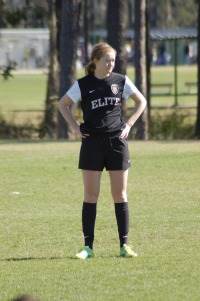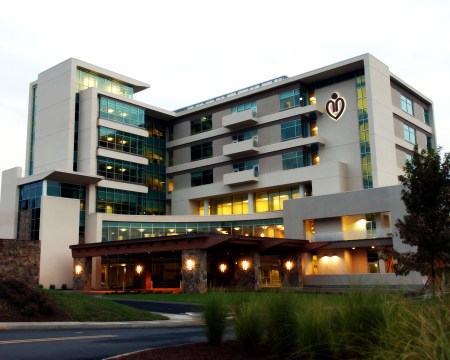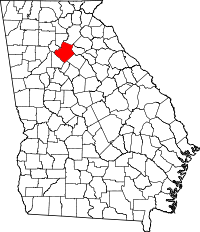Rachel Havens was playing on a club soccer team when she collided with another player and hit the ground hard.
She suffered a serious concussion.
It was so serious that Rachel, 14 at the time, had headaches for more than three months and missed several weeks of school. She was eased slowly back into classes at Peachtree Ridge High School.
Overseeing her care was a Gwinnett Medical Center athletic trainer embedded at the Suwanee school. That trainer “would brief me every day,’’ says Rachel’s mother, Paige Havens. “She would talk to her teachers.’’
“It was an entire team working together.”
The care of athletes at Peachtree Ridge is part of a partnership between Gwinnett Medical Center and Gwinnett County Public Schools that its leaders call the most comprehensive in Georgia in tackling concussions and other sports injuries.
That formal relationship was announced in October, but had its origin several years earlier.
Under the agreement, Gwinnett Medical Center (GMC) provides full-time trainers to Gwinnett high schools free of charge. GMC also educates coaches, school nurses, athletes and parents on sports medicine topics, and establishes protocols for how injuries are handled across the school system.
It comes with added resource of GMC-Duluth’s “Concussion Institute,” the hub of the concussion effort in Gwinnett. It offers exam rooms, physical therapy, and a multi-specialty approach to treating the injuries.
National awareness of concussions in football and other sports has grown over the past five years as former NFL players and other athletes have reported having serious neurological problems in retirement.
The CDC estimates that up to 3.8 million concussions related to sports or recreation occur every year in the U.S. (Here’s a Children’s Healthcare concussion toolkit about signs, symptoms and treatment.)
The Georgia General Assembly in 2013 joined most states in passing concussion legislation to protect school athletes.
The law’s provisions include informing parents or guardians of school athletes of the consequences of concussions, and educating coaches and school training staff on how to recognize symptoms. And under the legislation, any player with a concussion must be removed from a game until a health care provider clears the athlete to return.
‘Frontline sports medicine’
“Every concussion is different,’’ says Marla Shapiro, a developmental neuropsychologist at the Concussion Institute.
“My goal is to get athletes back to what they want to do as quickly and safely as I can,’’ says Shapiro. “We’re a lot busier than we thought we’d be.”
The athletic trainers spend their workday at the school.
“Athletic trainers are tremendous frontline sports medicine folks,” Shapiro adds.
Some high schools in Gwinnett have their own trainers and physician providers, but can consult the Gwinnett Medical protocols for concussions and other injuries as part of the sports medicine collaboration.
Lea Bay, president of GMC-Duluth, says high school athletes today “are bigger, stronger, and faster. There are a lot of collisions.”
Gwinnett County, in suburban Atlanta, is the second most populous county in Georgia, and its school system is the state’s biggest. It has a tremendous number of athletes, ranking perhaps third or fourth among school systems in the nation, Bay says.
Mike Emery, the county schools’ athletic director, notes that Gwinnett began doing impact testing “long before most of the attention was paid to concussions.”
The agreement with GMC includes sideline work, baseline testing, injury treatment, rehab, and education for coaches. “I think it’s unique,’’ Emery says.
Part of the work is getting a student with a concussion back functioning in a classroom. “It’s not just getting kids back to the field quickly,’’ he adds.
Rachel Havens is now 17, a senior at Peachtree Ridge. She’s no longer playing soccer, but now has hopes of becoming an occupational therapist.
The athletic trainer program helped save the family many trips to a doctor, says her mother.
“It was great to have a whole team on the ground,” Paige Havens says.



